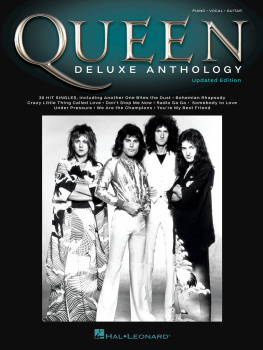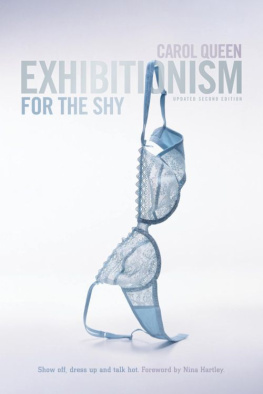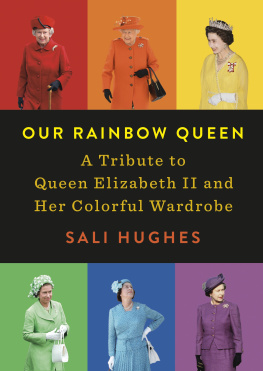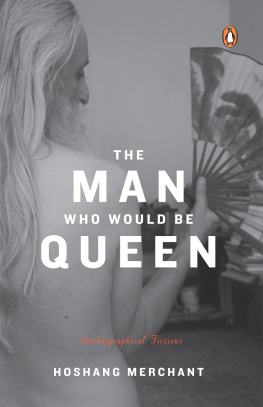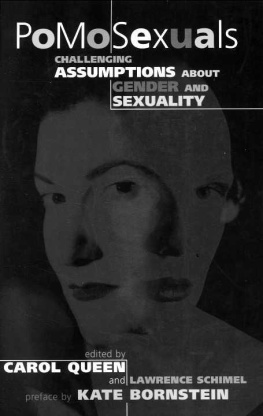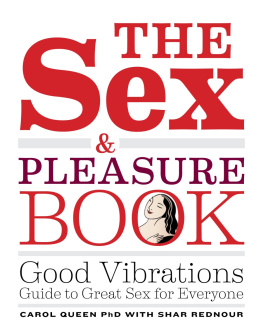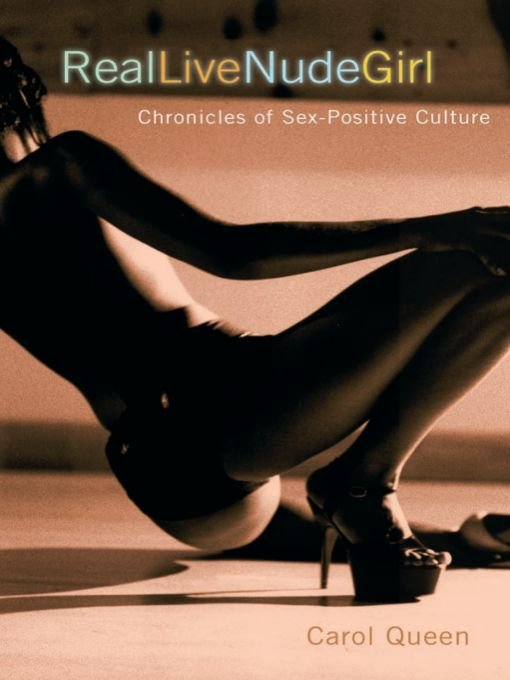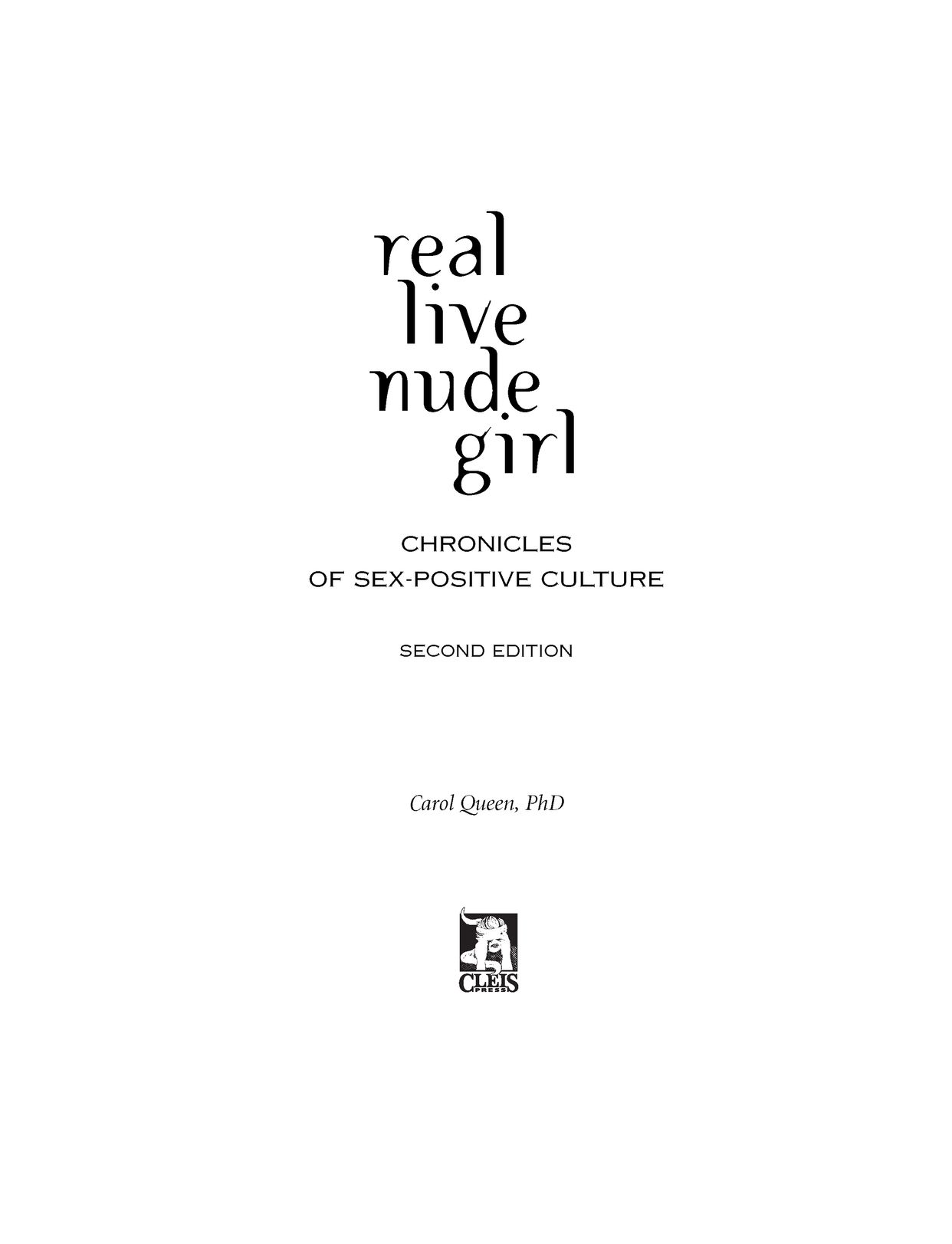Table of Contents
This book is dedicated to Robert, my beloved partner in adult education, playtime, and raising hell. Our sexual spelunking has let me create the framework of ideas that support this book.
And to the women who are helping to remake feminism into a place that welcomes women like me, especially Carole S. Vance, Gayle Rubin, Margo St. James, and Priscilla Alexanderthough there are many, many others.
And to Betty Dodson, for living into her years as a shining example and a dear friend.
And to Pat Califia, for every kindness and ceaseless inspiration.
Foreword to the Second Edition
I first heard the term sex-positive at The Institute for Advanced Study of Human Sexuality, the graduate school in San Francisco in which I enrolled in the late 1980s and from which I emerged a decade later with a doctorate in sexology. I was about to make my avocation into my vocationa tip of the quill to Shakespeareand hearing one of my instructors utter the phrase that ultimately shaped this book, and gave it its subtitle, changed my worldview in the short instant it took to take in the two words.
In one quick click! moment, the term sex-positive made all my years of living at odds with mainstream sexual culture make sense. I wasnt just marching (and fucking) to the beat of a different drummerI was instinctively shaping a life of sexual dissent because the culture into which I was born saw appropriate sexuality as such a narrow, normative path. Most sexual possibilities were off that beaten path, many ignored or excoriated, illegal or branded immoral by a majority culture that had no true respect for even the bright light of heterosexual passion. Not that passion was the heterosexual norm: repressing female sexuality saw to that.
I grew up in this culture, and you grew up in it, too. Whatever your first glimmerings of desire, you almost certainly got little support for them, not much real information about how sex works, how bodies and souls come together with other bodies and souls. Even if you desired nothing more than to touch yourself, chances are you couldnt announce your new adventure with pride at school, at the dinner table, to your friends. Or if you could, you discovered other people acted a little weird about it. Once in a while I meet a person who hasnt had a sexual upbringing tinged with shame, unmet curiosity, opprobrium, or all three. But people like that are rare.
I believe that most of us want enough sexual knowledge to let us feel comfortable and competent. (If we dont want this for ourselves, it is a quality we want in our partners.) I believe most people want sex to be good, not problematic, dangerous, or bad. They want (though often they are nowhere near able to articulate wanting) a sex-positive world: a world in which sex enhances human connection and sexual possibilities can be explored without shame.
Hearing the words sex-positive made me realize Id grown up in a fundamentally sex-negative world. Even the so-called sexual revolution hadnt knocked out the old guns: religious morality, legal sanctions, threadbare sex education or none at all, the war between the sexes. Erotophobia fed on itself, generation after generation, continually reproducing conditions of fear, shame, and danger. This has not truly changed. Even the generation which fought for sexual liberation has mostly retrenched, refusing to stand up and fight for good sex education for its own children.
It may sound odd to make the claim that U.S. culture is erotophobic. We live, after all, in a society that splices sex into practically everything: music, movies, commercials, the Internet, cable TV. Virginal teen pop stars dress and move like they just stepped offstage at a peep show, and I have the choice every night to channel-surf past nudity and faux fucking (often featuring the unfluid bouncing of faux breasts), the boys just as airbrushed and shaved as the girls. Sex is everywhere!
But sexual variety is not in fact so mainstreamed, and neither is the notion that everyone deserves the sex life that is the expression of their own unique set of desires, as long as it can be had consensually. The people bouncing up and down on adult cable are not fat, old, or in any way ordinary-looking. Theyre not queerat least, the script doesnt portray them that way. Theyre not disabled. And on the info and opinion shows, most sexual discussion is not especially deep. Eroticized images are great for keeping us distracted, and theyre pretty good at getting us to spend money. But shows that risk exploring sexual subjects are preceded by a warning: May be offensive to some viewers. Instead of the message that sex is of very nearly universal interest and deserves the best efforts of our culture-makers, we get spam.
Were sexually schizophrenic. We dont want kids to have good, clear, pleasure-based information. We want, if were grown-ups, to have access to sexual materials, but we wont fight for them, and often we cant tell if theyre any good when we get them. We wont insist our elected representatives stand up for this material, so for the most part they dont, even when theyre big consumers of it themselves. Sex drives us, and it is cannily marketed to do so, and most of us get enough sexual titillation and entertainment that we can easily ignore the question of sexual rights. Anyway, why would we involve ourselves in someone elses personal issues? Sex is supposed to be private.
So the reference to sex-positive culture in this books subtitle is not intended to refer to the larger culture in which we live. Although frank sexual discussion is more acceptable in the mainstream than it used to be, we dont live in a truly sex-positive world. Instead, sex-positivity occupies a countercultural position. It thrives in enclaves where people already live liberal (or libertarian) lives. It intrigues thoughtful people everywhere who dont buy in to simplistic, knee-jerk sexphobias. It is especially appealing to those who have felt the sting of erotophobia in their own lives. San Francisco is sex-positivitys capital city. People from around the world make pilgrimages here specifically because we integrate sex differently in our community than most others do. Its the culmination of our frontier history, the privilege of being the front doorstep for the Gold Rush (and its fancy brothels, too)a time when most of the women here were whores and lots of the men danced with each other. Its the effect on our local culture left by the Barbary Coast, the Beats, the gay baths, and the Summer of Love. Decades after any of these events, the cultural conditions that allowed them in the first place still make San Francisco a place of social openness and sexual experimentation, continually added to by immigrants who need a place like this, bits of it taken to other places by emigrants who bear new ideas elsewhere like the Olympic flame.
Today its likely to be Tantra and polyamory, sex workers rights and sex workers literature, sex parties and sex toys. When I say that sex-positive notions are borne out to other places, I mean that communities within communities exist in many places within which sex-positive people live and shape their lives. You cant find a duplex to rent around here, they tell me in Minneapolis, because the polyamorists have already rented them all so they can live next door to their lovers. Last spring a women-owned sex shop opened in Columbus, Ohio, a state so conservative that it didnt want to give any kind of safe sex information to its youth; a sex information hotline has existed there for years, answering questions the state of Ohio would rather keep shrouded in mystery.


